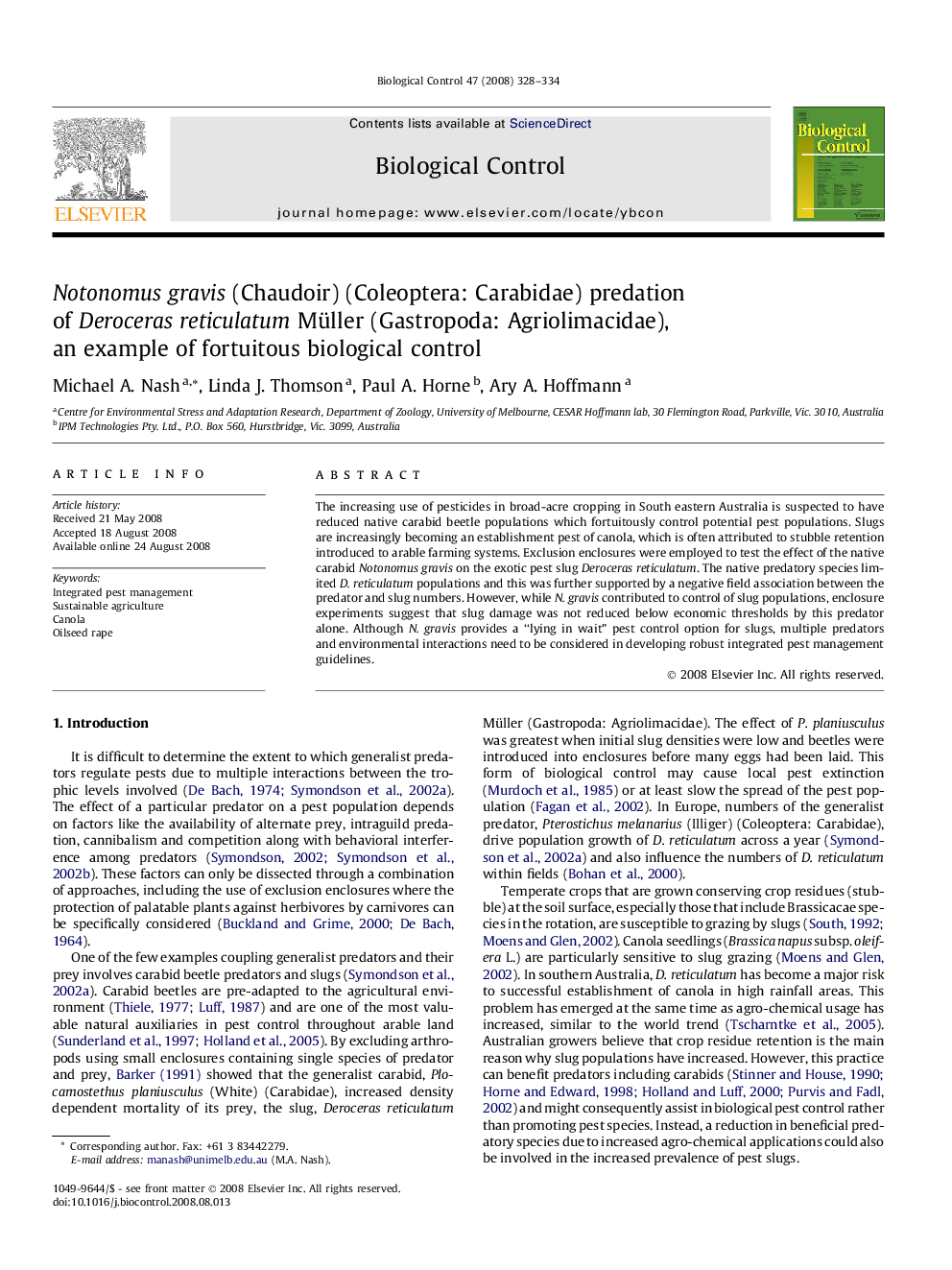| Article ID | Journal | Published Year | Pages | File Type |
|---|---|---|---|---|
| 4504793 | Biological Control | 2008 | 7 Pages |
The increasing use of pesticides in broad-acre cropping in South eastern Australia is suspected to have reduced native carabid beetle populations which fortuitously control potential pest populations. Slugs are increasingly becoming an establishment pest of canola, which is often attributed to stubble retention introduced to arable farming systems. Exclusion enclosures were employed to test the effect of the native carabid Notonomus gravis on the exotic pest slug Deroceras reticulatum. The native predatory species limited D. reticulatum populations and this was further supported by a negative field association between the predator and slug numbers. However, while N. gravis contributed to control of slug populations, enclosure experiments suggest that slug damage was not reduced below economic thresholds by this predator alone. Although N. gravis provides a “lying in wait” pest control option for slugs, multiple predators and environmental interactions need to be considered in developing robust integrated pest management guidelines.
